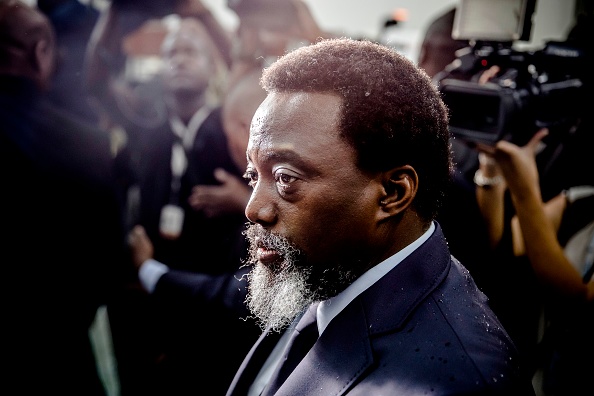Kinshasa – A judicial inquiry has been launched after a media probe based on millions of leaked documents accused the Democratic Republic of Congo’s ex-president Joseph Kabila and his family of siphoning off $138 million in state funds, a judicial source said on Wednesday.
Dubbed “Congo Hold-Up”, the investigation by global media outlets and anti-corruption NGOs has sparked outrage in the Central African country.
It accuses Kabila, who ruled the largest sub-Saharan African country from 2001 to 2019 after taking over from his assassinated father, of embezzlements between 2013 and 2018.
Government spokesperson Patrick Muyaya said Monday that the justice minister “wrote to the prosecutor on November 20,” a day after the investigation began to be published.
The minister “issued an injunction for the purposes of investigation and prosecution,” Muyaya said, who also carries ministerial rank.
ALSO READ | Media probe accuses DRC ex-president Joseph Kabila of embezzling $138m
“We as a government cannot remain on the sidelines in the light of such allegations.”
A source in the prosecutor’s office to the Court of Cassation – the country’s paramount judicial authority – told AFP on Wednesday that “a judicial inquiry has been opened” following a request from the justice minister.
The inquiry comes after French investigative media outlet Mediapart and the Platform to Protect Whistleblowers in Africa, gained access to 3.5 million leaked documents from the International Gabonese and French Bank (BGFI).
Nineteen media outlets and five non-governmental organisations coordinated by the European Investigative Collaborations (EIC) spent six months sifting through the documents.
“The documents… show that former president Kabila, his family and relatives received, with the complicity of the BGFI, at least $138 million from state coffers between 2013 and 2018,” Mediapart said.
ALSO READ | Embezzlement trial opens for ex-DRC’s prime minister
It added that the funds had been siphoned off “through a shell company set up in a garage”.
Kabila’s media office in a statement rejected “false accusations” and attacked “unjustified harassment from certain powers hiding behind the media.”
The BGFI bank, from its headquarters in Gabon’s capital Libreville, said in a statement on Wednesday that it “condemned acts contrary to the law and ethics that may have been committed in the past within its subsidiary BGFIBank RDC SA,” the bank’s Congolese branch.
It added that since 2018 it has “taken the necessary reorganisation measures” including filing a complaint to the prosecutor’s office.
However the bank added that it was only up to judicial authorities to establish guilt, and it “reserves the right to sue any person taking part in the dissemination and reproduction of false information or the disclosure of confidential or private information in the media or on social media”.
ALSO READ | DRC’s Constitutional Court drops trial of ex-PM
Poverty is widespread in the Democratic Republic of Congo, despite its wealth of gold, coltan, cobalt and other high-value minerals.
In 2018, nearly three-quarters of the population lived on less than $1.90 a day, the World Bank says.
Joseph Kabila became president aged just 29 in 2001, after his long-ruling father Laurent-Desire Kabila was assassinated.
He did not run in December 2018’s election, which was won by long-standing opposition figure Felix Tshisekedi who campaigned on a vow to root out corruption.
It was the Democratic Republic of Congo’s first peaceful political transition since independence from Belgium in 1960.
Follow African Insider on Facebook, Twitter and Instagram
Source: AFP
Picture: Getty Images
For more African news, visit Africaninsider.com


